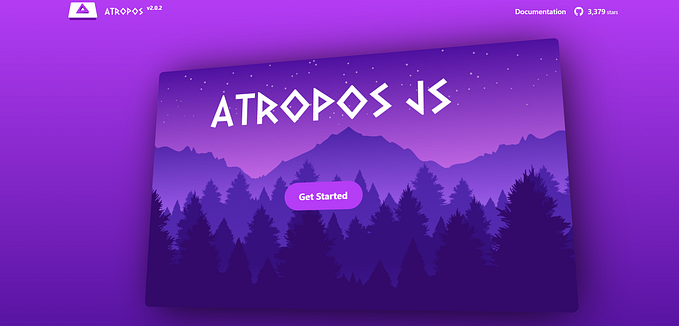Sonnet — An easy to use, simple podcast app for Android

Hi, I am Pratik, founder of Sonnet.
Listening to podcasts shouldn’t be hard. But so many podcast apps on Android are cluttered and confusing, especially for new listeners. Podcasts have been on the cusp of “going mainstream” for years. But that still hasn’t happened. 81% of Americans own a smartphone but just 32% listen to podcasts regularly. Sonnet is our attempt to bring new listeners into the fold with an app that is a pleasure to use.
It started with a podcast
Before starting this project we were making podcasts. We still do, although, this app is a lot of work and it’s getting harder than ever to take out time to make new content for our shows. Nonetheless, we learnt some difficult lessons as we went about making content for two years or so. The biggest takeaway was that people still do not know what podcasts are or how to listen to them.
Unreal, right? Podcasting has been around as a medium for 16 years and it’s still a mystery to most. I made India’s first audio drama podcast in 2017. When I tried telling people about it, most had no idea what I was talking about. I had to explain the concept of podcasts to them. I moved to Canada in 2019 for a grad program in Scriptwriting. To my shock, less than half of my classmates had listened to podcasts. And these were young people, most of them under thirty. People here were as clueless as people back home. How could that be?
Keep it simple stupid
I asked my friend to download a podcast app. This was an android app I used almost religiously. Bear in mind that this person had NEVER listened to any podcast. And she is not a Luddite, either. She downloaded the app and then called me up.
“It’s too confusing,” she complained.
“What is?”
“The app. There are so many options and the layout is weird.”
“You’ll get used to it,” I said.
“I’m uninstalling it.”
Well, I tried.
I looked at that app very carefully that day. Why did she feel that way? It seemed perfectly okay to me. To me; someone who had been listening to podcasts for years, had cycled through a bunch of apps and had eventually started making his own shows. But to someone new to this world, it was overwhelming. It was designed with the so-called power user in mind. A power user who needs ALL the bells and whistles possible. All the options and all the control.
When you browse forums you find a typical pattern. Someone recommends an app and another user replies with, “This app SUCKS because it doesn’t have XYZ feature.” So, the developer reads that, works for weeks on that one feature, and includes it in the next build. Because we creators want to please everyone. But that user won’t ever be happy. Next, he’ll complain about something else. Eventually, the app becomes bloated and unbearable. All these extra features are added for this small minority of 20%. But they alienate and intimidate the other 80%.
What Apple does right
I have always been an Android guy. People who like to diss Apple say, “Apple makes products for the simple-minded”. I think that’s unfair. Of course, Apple does a lot of stuff that is indefensible, but they mostly get it right with design. Apple designs its software (and hardware) to be approachable, NOT overwhelming. Sonnet was made keeping that philosophy in mind. An android app with a clean interface that’s intuitive to use. It’s designed to be friendly, NOT baffling. The idea of listening to podcasts scares new listeners anyway. They have all these preconceived ideas. It’s a tragedy, then, to push them away with something baffling, when they were willing to give this medium a try.
it was important for us to demystify podcast listening for new users. For example, we use mostly icons than labels. You tap the icon and you get that aha! moment. You discover stuff as you go along. We’d rather not convey information at first, instead of overloading your senses. This doesn’t mean that the app will remain in stasis. New features will be rolled out over time. And of course, the design will always be evolving too, to keep up with user behaviour.
A whole new world
(I sincerely hope Disney hasn’t copyrighted this phrase)
As of now, there are 800,000 podcasts with new shows going live every day. But every podcast app has the same 10–15 shows featured on the home screen, the screen users see first. Why do the biggest shows in the world, with millions of downloads, need all that exposure? This calls for a Bernieesque rant: The top 1% of shows get 49% of the exposure!
75% of podcasts are no longer in production. Let that sink in. These shows never found their audience. I am not saying all of these were great podcasts, impeccably produced with interesting content. A large number of these would have been guys-shooting-the-shit type. But there must have been a whole lot of good ones, which just perished because they never got the exposure or never reached the right listener.
I know this from experience. When we started making our shows we found it incredibly difficult to build an audience. I reached out to lots of apps, requesting them to feature us. I spent days deliberating over those query letters, eventually getting a few breaks.
Sonnet will, by default, showcase a randomised collection of shows on the app’s home screen. Our algorithm considers a lot of factors and is NOT skewed towards the most popular podcasts. For the top shows, we have our local and global Top 40 charts, a nod to classic radio, but smaller shows should get eyeballs too.
This positioning is a tightrope walk — have enough features to be useful but also keep improving the app while making sure it doesn’t lose that simplicity factor.
Only time will tell if we are successful in our mission of “podcast listening for noobs” or not. Send noobs.






